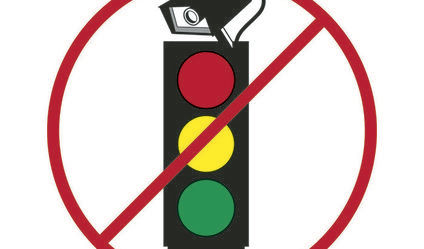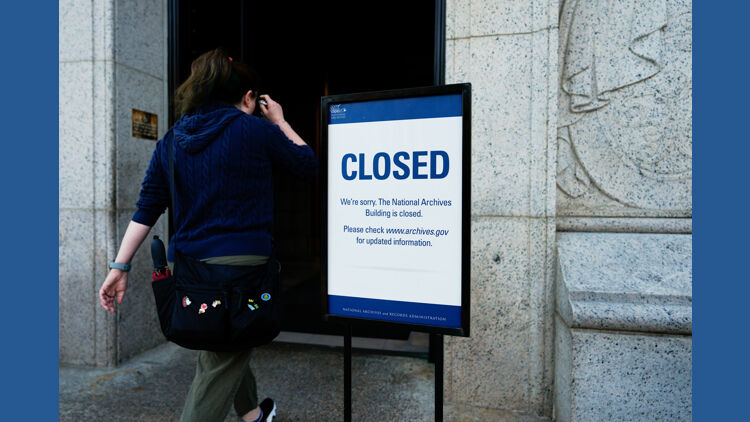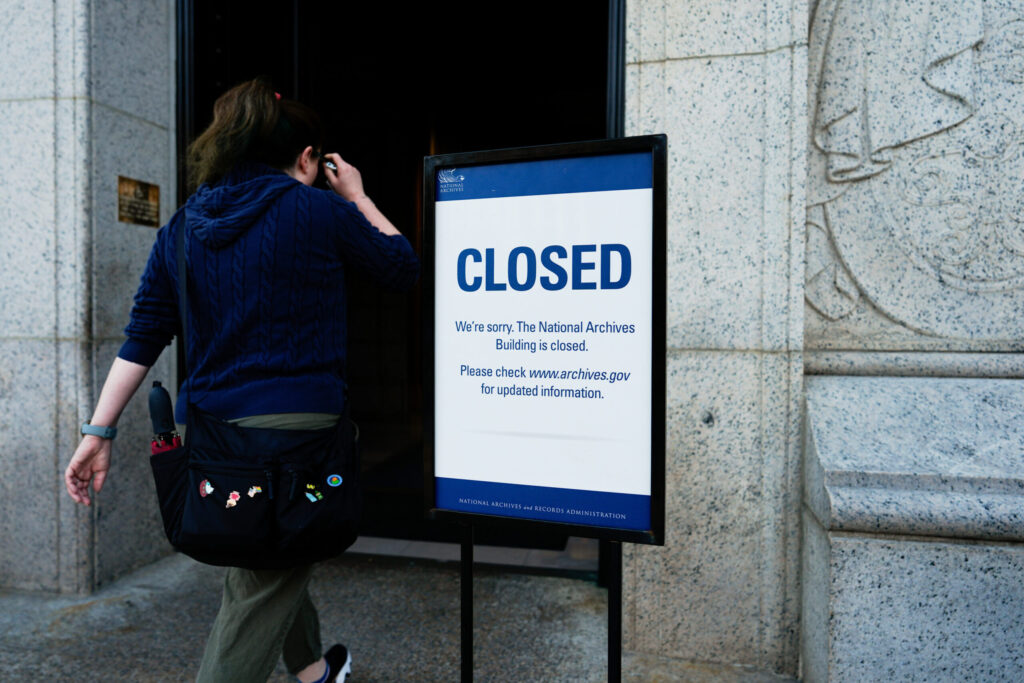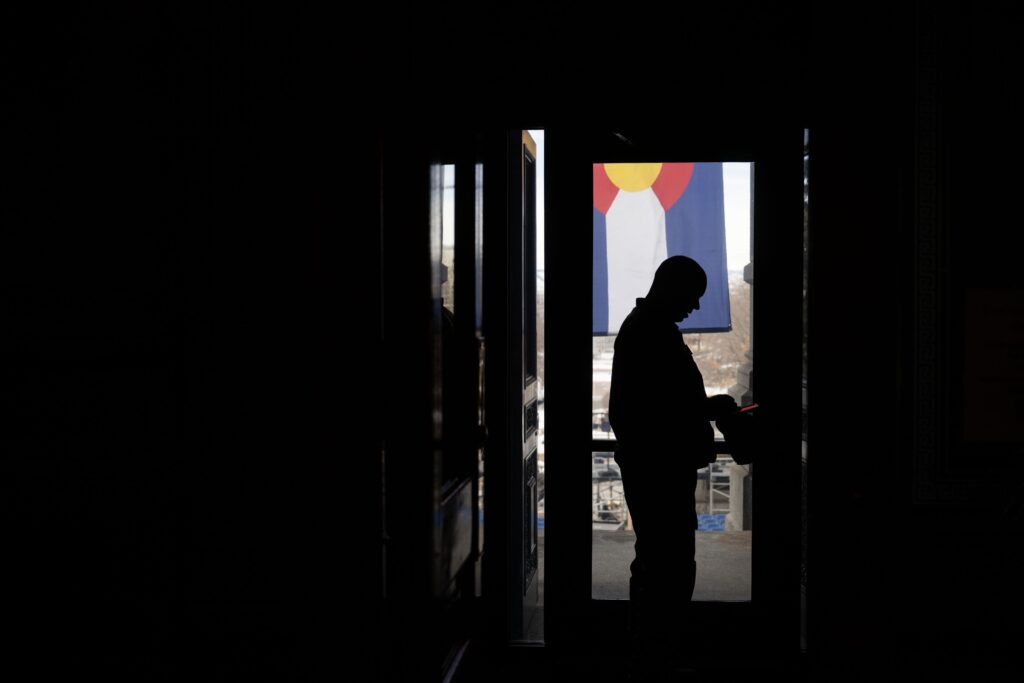Red-light camera ban passes, not likely to become law

Two bills that seek to curb the use of red-light cameras in Colorado may have emerged from the Legislature on May 6, but they are likely to hit a stoplight at the governor’s desk.
One bill, House Bill 1098, would require cities to seek voter approval for the use of red-light cameras and other photo radar systems. Another measure, Senate Bill 276, would ban the use of those systems altogether.
“People think that they are unfair,” said Sen. David Balmer, R-Centennial, who sponsored SB 276, speaking out against the technology. “People think that they are wrong. People think that it is the big bad government being mean to them. People believe in their heart of hearts that they are wrong.”
Balmer is among a majority of lawmakers, Democrats and Republicans, who support measures to either limit the use of automated vehicle identification systems or get rid of them outright.
This session marked the first time that red-light camera legislation prevailed at the General Assembly, after previous efforts had failed.
But bill sponsors and supporters shouldn’t expect either effort to become law. Late in the legislative session, Gov. John Hickenlooper sent a letter to House and Senate leaders that made it clear that he did not want a measure that seeks to ban automated traffic enforcement systems to reach his desk.
Hickenlooper again indicated a veto on Thursday, during a post-session Capitol press conference.
“I have not read those bills, but… depending on what the details of the bill is, if it goes against the letter, certainly I will veto it,” Hickenlooper told reporters.
Hickenlooper is also uneasy about an effort that lets voters decide on the use of the technology.
“It is very hard for people to vote yes on something nobody likes,” he said. “Who likes photo radar? But is it a part of our safety network?”
Bills hard to follow
It was challenging — and sometimes confusing — to keep up with the two bills late in the session, as they became heavily amended through the process.
In fact, the bills evolved to the point that they ultimately turned into — each other.
HB 1098 started out as an outright ban on all photo radar systems that result in citations. But that effort was set to die before an April 24 House Appropriations Committee hearing.
Rep. Stephen Humphrey, R-Severance, a bill sponsor, saved the bill from death after agreeing to an amendment that changed the bill entirely. The amendment would require cities to seek a vote from citizens if they wish to start or continue the use of the technology.
Humphrey later acknowledged in an interview with The Statesman that he only agreed to the amendment to keep the bill alive. And, although the bill ended up as an effort to allow for voter approval on the technology, he got what he originally wanted after all, through his work on Senate Bill 276.
That’s because Humphrey was the House sponsor of SB 276. And, during a May 5 House Transportation and Energy Committee hearing, Humphrey amended the bill to include a total ban.
So, HB 1098 became a bill that will require municipalities to seek voter approval on the photo radar devices, while SB 276 turned into a ban on the technology altogether.
Following so far?
“I favor a ban,” Humphrey said. “My ideal bill is the one I introduced from the start.”
Philosophical versus public safety concerns
Although both bills passed through the Legislature, the measures had their fair share of detractors.
They included representatives from law enforcement agencies and municipalities. They argue that the technology is a benefit to public safety.Police officers testified throughout the legislative committee process that the systems have assisted in reducing the number of accidents at busy intersections and perhaps save lives.
Commander Harold Chapman of the Commerce City Police Department said the red-light cameras that are in place at the busy and sometimes dangerous U.S. 85 and Highway 2 intersection are vital to public safety. Chapman also said that it is “logistically difficult” for officers to be properly positioned to monitor the heavy traffic that flows through there.
“There is no place to sit and observe the light and the vehicle at the same time,” Chapman said. “It just can’t be done.”
Mark Radtke of the Colorado Municipal League told lawmakers during a recent committee hearing that decisions regarding photo radar systems are best left to local officials.
“City councilors are the elected officials that are best equipped to make those decisions,” Radtke said.
Sen. Jesse Ulibarri, D-Westminster, said it doesn’t make any sense for the very drivers who do not like being ticketed to be the ones to decide whether cities can use the technology.
“Instead we’re saying let’s put the decision in the hands of someone angry for paying a fine for running a red light,” he said. “It’s inherently prejudiced.”
Sen. Linda Newell, D-Littleton, is adamantly opposed to efforts to do away with the technology.
“This is a dangerous bill,” she said. “It will result, if it passes, in serious injuries that could result in death. This bill would not apply to you if you are following the law.”
But supporters of the measures question the effectiveness of the technology. Many argue that the systems actually lead to more accidents, with drivers, fearful of being ticketed, being rear-ended as they abruptly stop at intersections. And those who want to see the systems go away wonder if cities are using the technology as a way to drive revenue.
They also expressed due process concerns because those who are caught on camera running red lights or speeding cannot cross-examine a machine in court.
Others point to privacy concerns.
“I don’t want to live in a society that is subject to perpetual surveillance,” said Senate Minority Leader Morgan Carroll, D-Aurora. “Just because it’s convenient doesn’t mean that it is a real substitute of putting real law enforcement on the ground to determine whether there is probable cause as to whether you are doing (something wrong).”
Hickenlooper said he isn’t “convinced the Legislature wanted to pass this bill” and joked that lawmakers wanted to put the pressure on him.“Do you think that was an accident or do you think they were just trying to box me?” Hickenlooper quipped.
Humphrey knows full well that the bills may never become law. But he felt it was important for the effort to go forward.
“If the governor vetoes that, he vetoes that,” he said.
— Twitter @VicVela1













